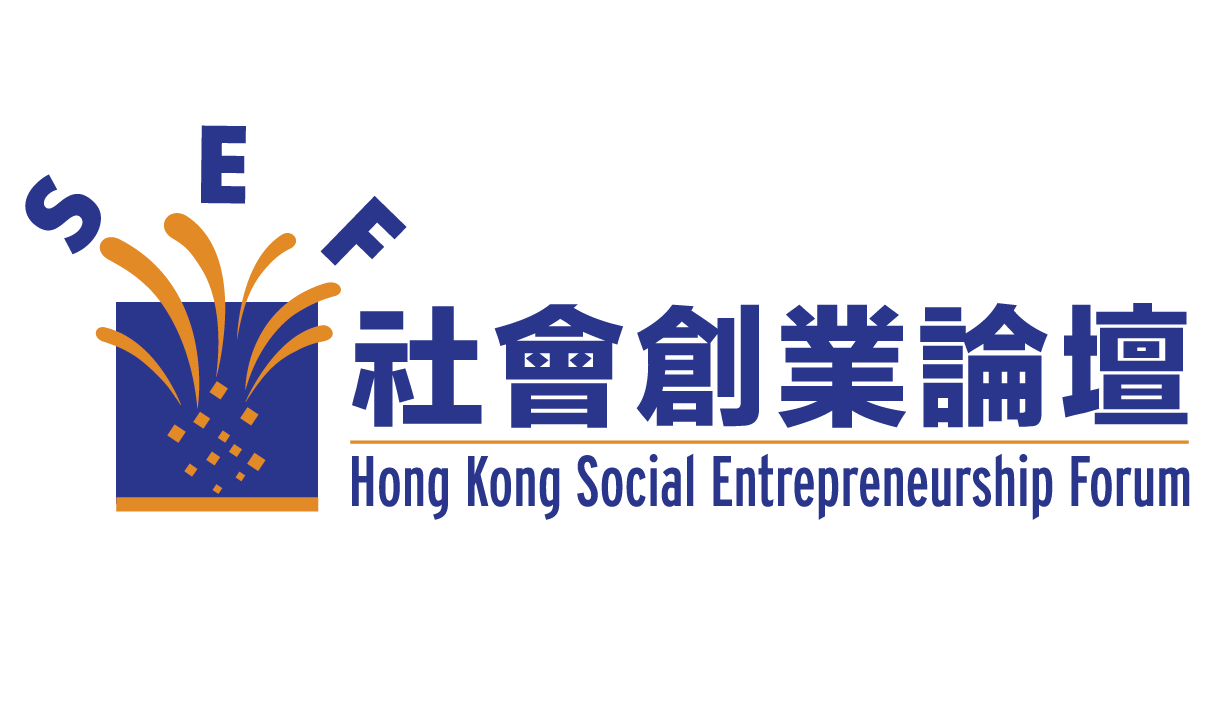Edited by Dr KK Tse
Last week, the founder of 1 KG More, Andrew Yu, and his team spent four days in Hong Kong sharing their experience with four audiences in four different occasions. The highlight of their visit was the HKSEF Open Forum in which speakers from three other organizations were also present. They were: Caroline Watson of Hua Dan, a Beijing-based social enterprise using the theatre to educate and empower rural female workers, Victoria Tso and Loretta Chang of One Laptop Per Child (OLPC), who introduced the amazing laptop computer and the project to deliver it to thousands of disadvantaged
school children all over the world (including the first project in Sichuan, China, next month), and Chris Kwok of Carbon Care Asia who helped us to make the Open Forum a carbon-neutral event.
The speakers and their organizations are real role models of what social entrepreneurship is all about. Andrew Yu, in particular, has demonstrated what a social entrepreneur can do when the passion for a social cause finds expression in a creative business model. It was a pity that not too many practicing social entrepreneurs were present to hear his inspiring story. It could also have been a paradigm-shifting experience for the civil servants in charge of making grants to social enterprise
projects. In what follows, I will summarize some key insights from this young man almost half my age.
First, Focus on the Big Issue
1 KG More attempts to improve the state of rural education in China. How big is this issue? I must confess that I did not realize the extent and seriousness of the issue until I listened to their presentation. I was deeply touched by what I heard and I said to myself: am I listening to a description of rural education in pre-liberation China? I couldn’t believe that 60 years after the founding of the People’s Republic of China and 30 years of rapid economic growth, rural education in so many parts of China’s countryside is still in such a miserable state. There is no doubt that 1 KG More is tackling a major social
issue that will affect China’s generations to come.
Second, a Massive Problem Requires a Massive Solution
How could rural education be improved? There are no simple answers. Government actions are important but would not be enough. Businesses are too remote or indifferent to the issue. Some NGOs are doing impressive work but their efforts are feeble compared to the size of the problem. What could an individual citizen like Andrew do? Not much, on the face of it. And Andrew knew it. But he was not deterred. He tried to think outside the box and started to harness a major but untapped resource to address the issue – the millions of city dwellers who visit the countryside every year. Andrew began to
put one kilogram more into his backpack and deliver little gifts to schools when he travelled to the rural areas. His actions and subsequent sharing in internet forums inspired thousands to follow his example. In 2008 alone, over 10,000 backpackers visited rural schools with one KG more on their back. They did not only deliver books, stationary, toys, etc., but also took time to talk to the pupils and teachers, opening their minds and horizons. In five years’ time, 1 KG More hopes to have an annual 1,000,000
visitors undertaking these seemingly small but worthy actions.
Third, Be Creative in Harnessing Information Technology
1 KG More has created a virtual community of volunteer-tourists via the internet (www.1kg.org). By setting up a platform to enable everyone to search for information about rural schools and their needs, to share observations and insights from their visits, to propose ideas for individual and team actions, 1 KG More empowers the volunteers to contribute their effort and imagination to do whatever they can to help rural schools to get better through their visits. All very tiny steps, but millions of tiny steps could go
a long way. 1 KG More’s role model has been Wikipedia which started only in 2001 and has now more than 2,800,000 articles compared to Britannica’s 96,000. Come to think of it, how many social enterprise in Hong Kong are harnessing the internet to advance their causes?
Fourth, Guerrilla Marketing Makes the Difference
When was asked where the name ‘1 KG More’ came from, Andrew’s response was revealing. “I had had a marketing background when I worked in the IT industry,” he recalled, “When I thought about giving a name to what I want to do that is easy to remember and act upon by others, I immediately thought of 1 KG More. Simple, actionable, and memorable. And it catches on quickly.” Why is it so important to have a name that can travel far and wide? Listen to what one guerrilla marketer, Jay Levinson, has to say, “How many times must your message penetrate a person’s mind in order to
transform them from total apathy, meaning, they’ve never heard of you, to purchase readiness, which means they’re ready to buy from you? Astonishingly, the researchers came up with an answer. It was 9. Nine times. Patience makes it happen. Some people think that marketing is a miracle worker. Not true. It is patience that work the miracles.” 1 KG More is a classic case of how guerrilla marketing works, no marketing budget, no advertisement, no PR professionals, but seizes every opportunity to let the name
and the deeds behind it catch the imagination of the public.
Fifth, Think Scaling Up
I have had the opportunity to accompany Andrew and his team to visit a number of local social enterprises during their stay in Hong Kong. Naturally, he was keen to know about the business models and development potential of these social enterprises. Then I have a rare insight into his mind: he always thinks scaling up. On every instance, he would ask the host how the enterprise could scale up and was quick to identify the barriers in their current business models. This is amazing for me. But on reflection, it is a simple mental attitude: every social enterprise should and must think about scaling up. In the case of 1 KG More, Andrew has focused on this issue from day one, if only because his passion for tackling the massive rural education issue requires a massively scalable solution. In generating income for his social enterprise, Andrew has the option of offering consultancy service to corporate clients. He felt that they could do it but decided consciously not to focus on it. The key consideration is that it is difficult to scale up consultancy service; one would be limited by the amount of time available to deliver
consultancy. Instead, 1 KG More chose to leverage their time to help clients design ‘social purpose products’ (公益產品) that could impact on rural schools, such as the project with Sichuan Postal Office involving the design of a charity postcard which would generate thousands of books being donated to rural schools. They would charge a fee on the sale of the product, the volume of which would be totally independent of their time commitment. Just this project alone, the potential fee could be well over RMB100,000 which would be difficult to secure in consultancy projects.
Sixth, Think Changing the World
The book that inspired Andrew to quit his job to start a social enterprise was How to Change the World: Social Entrepreneurs and the Power of New Ideas by David Bornstein (Oxford: OUP, 2004), also available in Chinese translation entitled ⌈如何改變世界⌋. Incidentally, Caroline Watson also referred to this book as a tipping point of her work. Indeed, this book has influenced and inspired a large number of people around the world and anyone interested in social entrepreneurship is strongly advised to read and enjoy the amazing stories told in this book. Andrew is not interested in just running a social enterprise; his mission is to change the world.
In short, Andrew, a young man from Guangdong, has demonstrated to us what social entrepreneurship is all about. It is now up to us to do our part.

